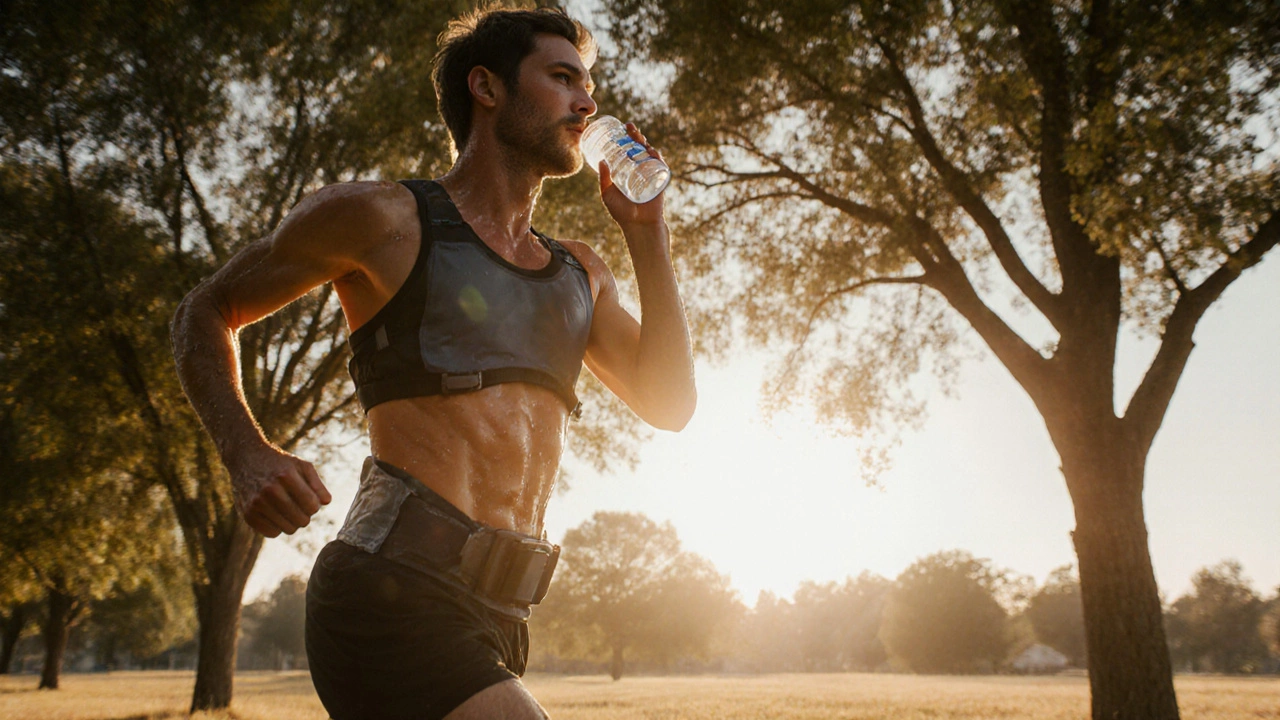When you're out running, your body loses fluids faster than you might realize—especially in heat, humidity, or during longer efforts. Running hydration, the practice of replacing fluids lost through sweat during running to maintain performance and safety. Also known as fluid balance for runners, it's not just about drinking water—it's about timing, quantity, and what you're drinking. Skip it, and you risk cramps, dizziness, or worse. Get it right, and you’ll run longer, recover faster, and feel stronger mile after mile.
Many runners think they just need to chug water before and after. But electrolytes for running, minerals like sodium, potassium, and magnesium lost in sweat that help regulate muscle function and fluid balance matter just as much. If you're running over 45 minutes, especially in warm weather, you’re losing more than just water—you’re losing salts your body needs to keep working. That’s why sports drinks or electrolyte tablets can be smarter than plain water for longer runs. And if you’re sweating a lot? Salt cravings after a run? That’s your body asking for it.
Then there’s water intake running, the amount and timing of fluid consumption before, during, and after a run to match your body’s needs. Drinking too little leads to dehydration. Drinking too much? That can cause hyponatremia—a rare but dangerous drop in blood sodium. The sweet spot? Sip small amounts every 15–20 minutes during runs longer than an hour. Weigh yourself before and after a run. If you lost more than 2% of your body weight, you didn’t drink enough. If you gained weight? You drank too much.
It’s not one-size-fits-all. A 5K in cool weather? Water’s fine. A 10-miler in July? You need electrolytes. Morning jog? Maybe just a glass before you head out. Evening trail run? Bring a bottle. Your hydration plan should change based on distance, climate, sweat rate, and even what you ate that day. The posts below show real runners who cracked their hydration game—some with simple tweaks, others with full plans. You’ll see how protein shakes helped one runner recover faster, how a 3-day tummy flattening plan included smart fluid timing, and why skipping hydration made one person’s HIIT sessions feel impossible.
There’s no magic number. No rule that says you must drink eight glasses a day. It’s about listening to your body, tracking your sweat, and adjusting as you go. The right hydration doesn’t just help you finish—it helps you feel good while you’re doing it. And that’s what makes all the difference between just running… and really owning your run.

Drinking water while running isn't optional-it's critical for performance and safety. Learn how much, when, and what to drink based on distance, heat, and sweat rate.
READ